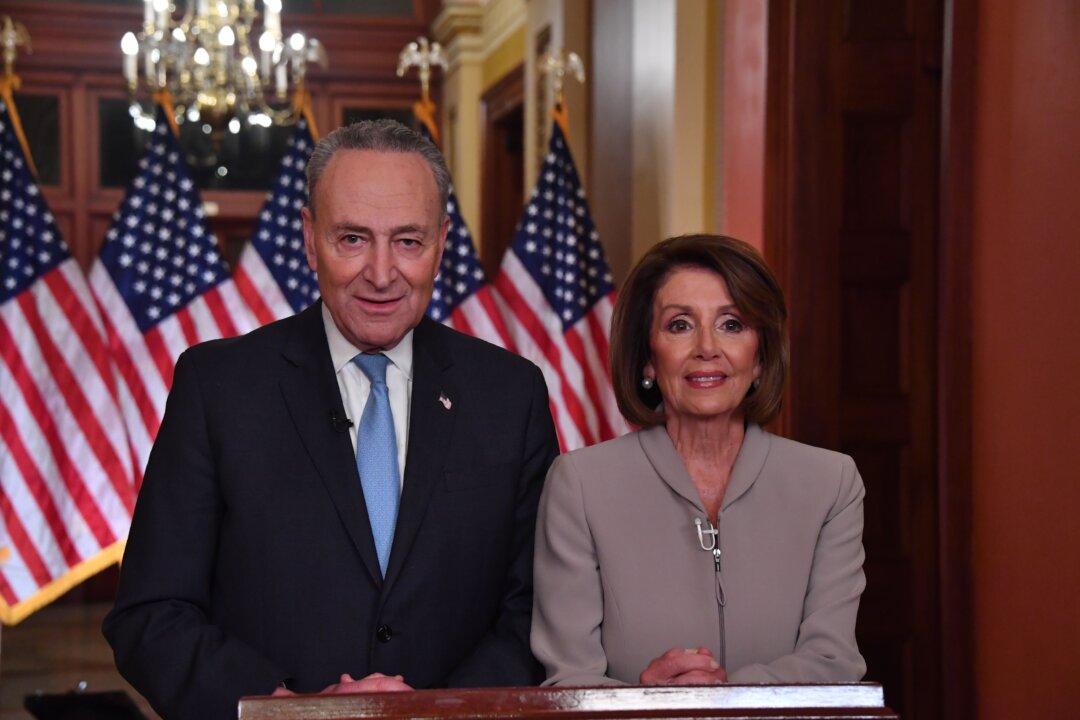After a weekslong stalemate with House moderates over Sen. Bernie Sanders’s (I-Vt.) $3.5 trillion budget resolution, Speaker of the House Nancy Pelosi (D-Calif.) finally reached a compromise with the rebels on the morning of an emergency session of Congress on Aug. 24. While the agreement secured advancement of the budget resolution, splits between moderates and progressives continue to threaten the party’s paper-thin majority to pass the budget and infrastructure bills in both chambers.
In an Aug. 12 letter to Pelosi, nine moderates objected to the speaker’s attempt t0 bundle the bipartisan infrastructure bill with the controversial budget resolution. They called the infrastructure bill “a bipartisan victory for our nation” and swore that they would “not consider voting for a budget resolution until the bipartisan Infrastructure Investment and Jobs Act passes the House and is signed into law.” Later, another moderate congresswoman joined with the nine.





